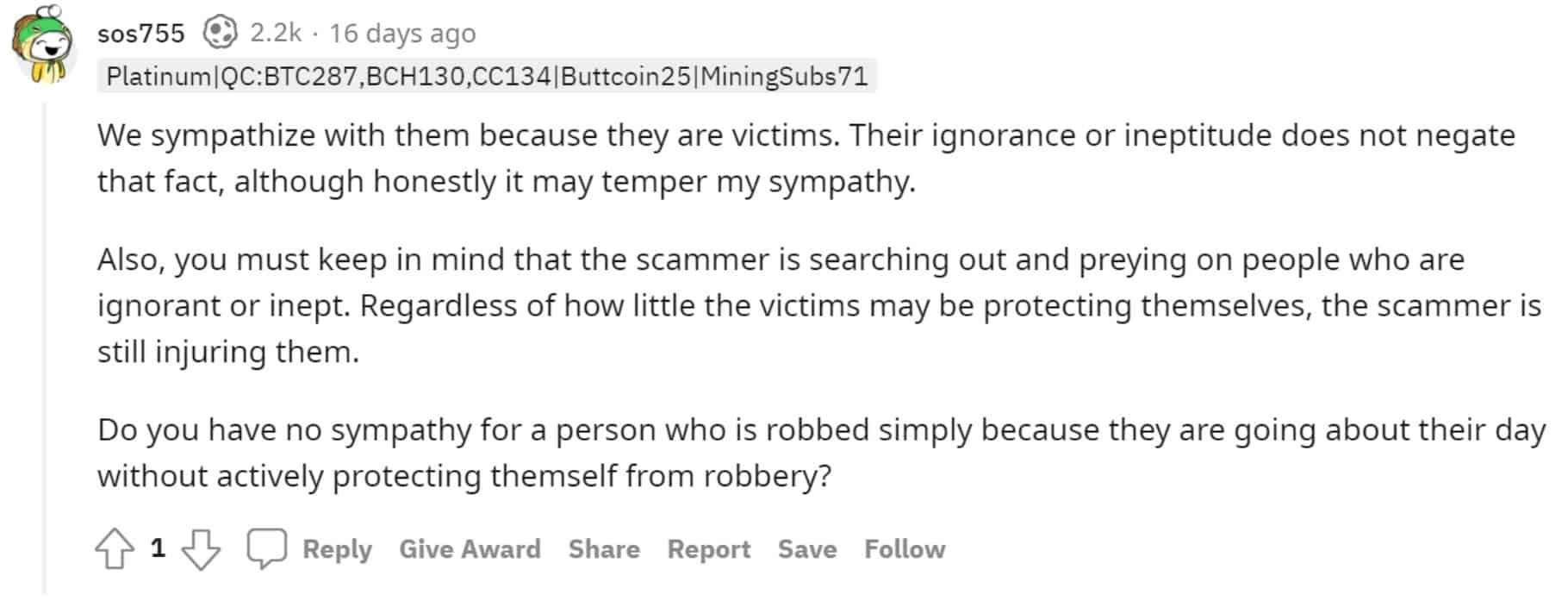I’m going to use hacked and scammed in the same breath here because in both instances the hacker is using a power imbalance – an imbalance in knowledge, skill and experience to extract funds that are not theirs.
Think of granny who has heard she should boost her investments by putting a little into crypto and is led by the crypto scammer to the blockchain slaughterhouse stealing all she has.
I read of an instance like this on Reddit, and saw opinions that sided in both camps:
The question was asked, should crypto natives have any sympathy for people who are scammed in this way?
Many said yes, with responses like this:

Eloquently put, or:

And some have a bet each way …
Others have little empathy or sympathy, and even argue that this is collateral damage we should accept to stave off the alternative:
I think that means ARMOK is on Grannies side not for Grannie, but so he can participate in early stage investing without regulation. How noble…
But many crypto natives have no time for victims of hacking. Take these comments for example:
Or this classy answer:


The Hidden Victims
But in all this we should not forget the victim and their circle of family and friends who suffer at the hands of scammers. People who lose life savings, lose their house, or even lose their will to go on living after suffering the shame and pain of meaningful crypto losses.
I for one ask, “Can’t we grow DeFi and blockchain adoption while still exhibiting good character such as empathy, compassion, and patience?”
Recently I saw this article about a man who lost his superannuation to a crypto scam. The sums are not large, but they don’t have to be to have a life-altering impact. In this scam, the victim lost $100k when his account security was compromised on a centralised exchange.
Was he naive? Yes. Was he risking more than he could afford to lose? Yes. Was he diversified across wallets/exchanges or using sufficient levels of security? No.
Not everyone can swim well enough to evade sharks before getting in the water.
But, I for one still have empathy for him because it is a lesson anyone of us could have learned just as painfully.
Prevention is always better than the cure, but hopefully, if he moved quickly, he called on recovery specialists like Rexxfield to recover his funds (who by the way, have an 80% cybercrime resolution success rate).





